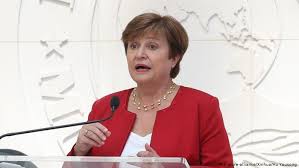The International Monetary Fund (IMF) has warned that price caps on fuel and electricity tariffs below the cost recovery could result to a fiscal cost amounting to 3% of Nigeria’s Gross Domestic Product (GDP) in 2024.
The warning was given by the staff of the Fund in their report on completion of their mission to Nigeria, who welcomed the recent policy decisions by the Federal Government, including the latest jerking up of the Monetary Policy Rate (MPR) by 400 basis points to 22.75% last week by the Central Bank of Nigeria, and noted the decision would help moderate the nation’s surging inflation.
The report’s findings reflected that Nigeria made improvements in revenue collection and oil production even though persistent low revenue mobilisation vitiated the government’s response to certain macro-economic shocks and promotion of lasting development.
The report partly stated: “Non-oil revenue collection improved by 0.8 percent of GDP in 2023, helped by naira depreciation. Oil production reached 1.65 million barrels per day in January as the result of enhanced security. The capping of fuel pump prices and electricity tariffs below cost recovery could have a fiscal cost of up to 3 percent of GDP in 2024.”
Also, the IMF advised that the cash transfer programme should be implemented before the government address what it termed “costly, implicit fuel and electricity subsidies.”
A further analysis of the report’s findings indicated that the multilateral development finance institution also charged the Federal Government to prioritise tackling food insecurity, projecting the number of food unsecured Nigerians to be at 8% of Nigeria’s over 200 million population.
The report clarified: “With about 8 percent of Nigerians deemed food insecure, addressing rising food insecurity is the immediate policy priority. In this regard, staff welcomed the authorities’ approval of an effective and well-targeted social protection system. The team also welcomed the government’s release of grains, seeds, and fertilizers, as well as Nigeria’s introduction of dry-season farming.”
The IMF staff welcomed current reform initiatives of the Nigerian government on the social welfare system and the release of grains to alleviate the hardships of millions of Nigerians that are currently finding it difficult to eat.






